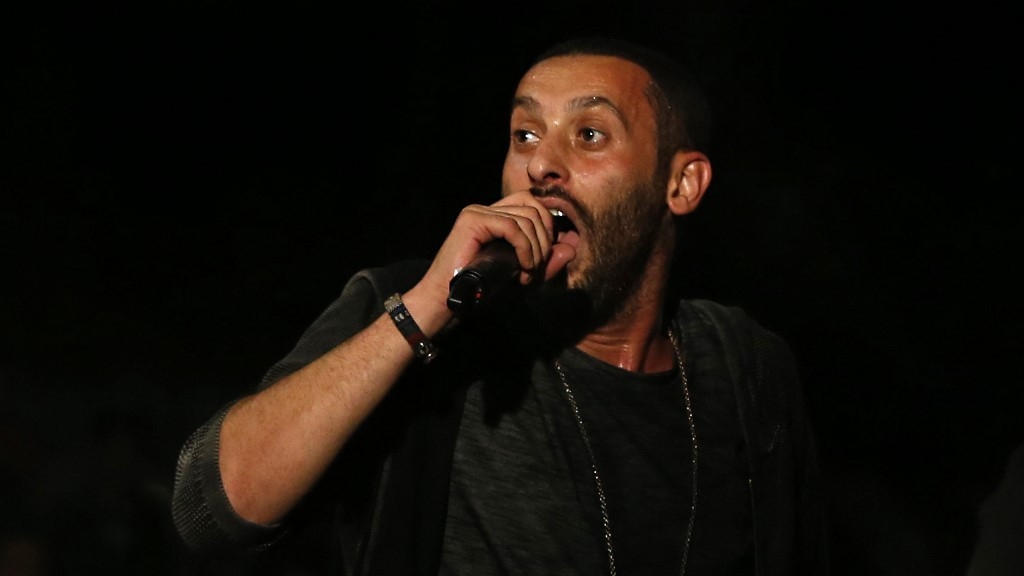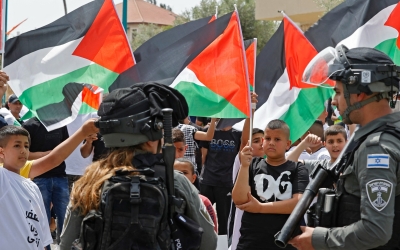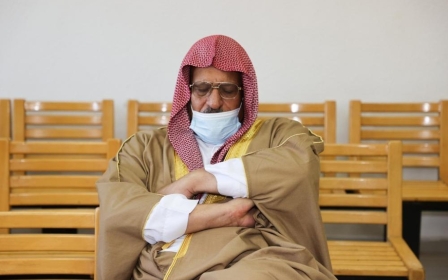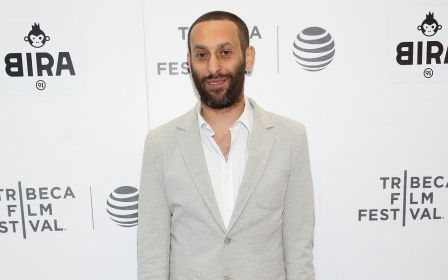Israel: Police attempt to shut down Palestinian rapper's show over 'incitement'

Israeli police briefly stopped a music performance by a popular Palestinian rapper on Saturday, claiming his songs incited against the state.
While performing the Salam Ya Sahbi song at a Christmas market in Kafr Yasif near Acre (Akka), policemen interrupted Tamer Nafar and shouted at him to "get off" the stage, according to his manager Hanan Nafar.
The singer refused to comply, telling the officers that he had not finished his performance.
Hanan told Middle East Eye that a police officer then said: "Get off or I'll bring you down" to which Tamer replied, "Come up and take me down."
When Tamer got off the stage after finishing his song, about 10 policemen tried to remove him from the event with one officer pulling him by his neck, Hanan said.
New MEE newsletter: Jerusalem Dispatch
Sign up to get the latest insights and analysis on Israel-Palestine, alongside Turkey Unpacked and other MEE newsletters
Some of the organisers and council members of Kafr Yasif town, who are mostly Palestinian citizens of Israel, then confronted the officers.
Nafar shared a video of the conversation on his Facebook page in which the police officer accuses the singer of incitement.
"He raps against the police, his rap is an incitement against the state of Israel," the officer said.
"He will not continue his show. An officer will arrive in a bit to shut down the whole show according to the law."
Tamer said the show continued nonetheless. "Nothing will stop us," a message at the end of the video reads.
In a statement sent to MEE, the rapper said police have tried to shut down his shows in the past but this was the first time they accused him of incitement.
"I will continue to do what I love, which is to express my artistic message, to my fans and those who love me," he said.
Target of the far-right
Nafar, a prominent rapper from Lydd (Lod) who founded the first Palestinian hip-hop group DAM, has been a frequent target of right-wing criticism in Israel for years.
In February, a campaign video to combat violence against women featuring Nafar caused an uproar among far-right groups.
Btsalmo and the Srugim website complained to the Social Equality Minister Meirav Cohen who ordered the video to be taken down.
In a letter to Cohen, Btsalmo said: "Nafar is a violent man, who encourages hate" and asserted that his song Who's a Terrorist encourages Palestinian citizens not to serve in the Israeli army.
In 2021, Labor and Social Affairs Minister Meir Cohen stopped promoting a video campaign led by Nafar to assist children who have been molested, after complaints from the far-right.
Lawmaker Itamar Ben-Gvir described Nafar as "an extremist, nationalist and inciter who is known for his antisemitic and anti-Israeli messages," in a letter to the ministry at the time.
Palestinian citizens of Israel are frequently accused and charged with incitement in Israel.
In August, a study by the Israel Religious Action Center (IRAC) revealed that Palestinian citizens of Israel received a significantly higher number of indictments, convictions and sentences for incitement to violence than their Jewish peers in the past eight years.
Between 2014 and 2021, 77 percent of all indictments for incitement to violence and racism were filed against Palestinian citizens of Israel, who make up only 20 percent of the country's population.
The figures represented "insufficient enforcement policy", the Jerusalem-based group said.
Middle East Eye delivers independent and unrivalled coverage and analysis of the Middle East, North Africa and beyond. To learn more about republishing this content and the associated fees, please fill out this form. More about MEE can be found here.





